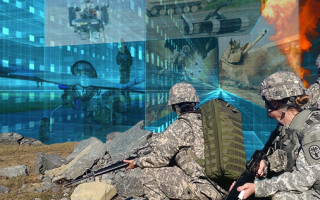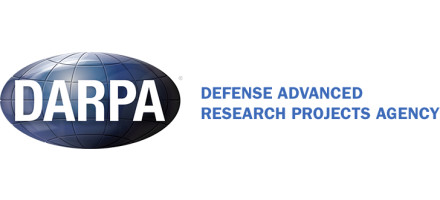DARPA launches new AI program to create systems that react to novelty in open worlds
NewsFebruary 19, 2019

ARLINGTON, Va. Defense Advanced Research Projects Agency (DARPA) officials launched the Science of Artificial Intelligence and Learning for Open-world Novelty (SAIL-ON) program, which intends to research and develop the underlying scientific principles and general engineering techniques and algorithms needed to create artificial intelligence (AI) systems that act appropriately and effectively in novel situations that occur in open worlds.
The program’s goals are to develop scientific principles to quantify and characterize novelty in open-world domains, create AI systems that react to novelty in those domains, and to demonstrate and evaluate these systems in a selected DoD domain.
“Imagine if the rules for chess were changed mid-game,” says Ted Senator, program manager in DARPA’s Defense Sciences Office. “How would an AI system know if the board had become larger, or if the object of the game was no longer to checkmate your opponent’s king but to capture all his pawns? Or what if rooks could now move like bishops? Would the AI be able to figure out what had changed and be able to adapt to it?”
If successful, SAIL-ON would teach an AI system how to learn and react appropriately without needing to be retrained on a large data set. The program seeks to lay the technical foundation that would empower machines, regardless of the domain, to go through the military OODA loop process themselves – observe the situation, orient to what they observe, decide the best course of action, and then act.
SAIL-ON will require performers and teams to characterize and quantify types and degrees of novelty in open worlds, to construct software that generates novel situations at distinct levels of a novelty hierarchy in selected domains, and to develop algorithms and systems that are capable of identifying and responding to novelty in multiple open-world domains.
SAIL-ON seeks expertise in multiple subfields of AI, including machine learning, plan recognition, knowledge representation, anomaly detection, fault diagnosis and recovery, probabilistic programming, and others. A Broad Agency Announcement (BAA) solicitation is expected to be posted in the near future and will be available on DARPA’s FedBizOpps page: http://go.usa.gov/Dom
A Proposers Day for interested proposers is scheduled for March 5, 2019, in Arlington, Virginia: https://go.usa.gov/xEUWh








